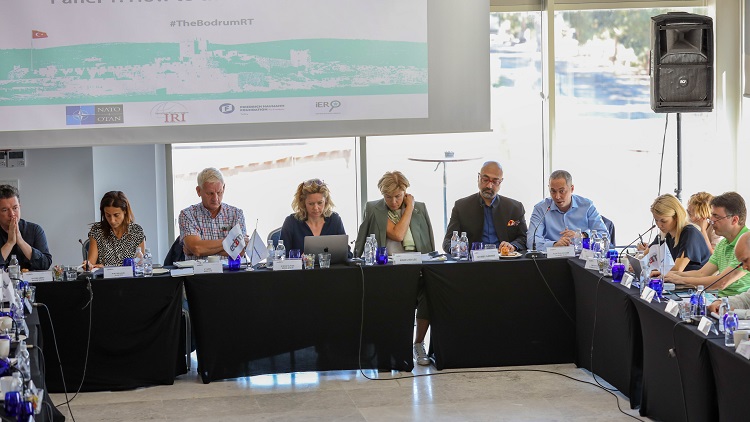ReShape Europe
18. Bodrum Roundtable

The European world has been in disarray since February 24, and many certainties about the functioning of international politics have been put to the test since the Russian invasion of Ukraine. Turkey's relations with its partners and neighbors also raise questions - about their goals and their reliability. There could hardly be a better time for the 18th Bodrum Roundtable to physically bring together Turkish and international foreign policy experts, policymakers and journalists again after a pandemic-related hiatus. The Roundtable is the annual flagship event of the Istanbul think tank Center for Economics and Foreign Policy Studies (EDAM), which this year was organized in cooperation with the Center for European Reform (CER). The three-day event was supported by NATO and the Friedrich Naumann Foundation for Freedom, among others.
EDAM Chairman, Ex-Ambassador Tacan Ildem, opened the meeting, followed by welcoming remarks from Bodrum Mayor Ahmet Aras. The focus of the first evening was set by the FDP MP and foreign politician Alexander Graf Lambsdorff with insights into the current politics of the traffic light coalition. The debates in Germany, which is perceived abroad as a strong, perhaps the most important player in the EU, are not always understandable for many observers, be it the struggle to extend the lifespan of nuclear power plants or the hesitant attitude towards arms deliveries to Ukraine. The interest in Count Lambsdorff's assessments from a liberal Berlin point of view was correspondingly lively.
The second day started with a lecture by Odile Renaud-Basso, President of the European Bank for Reconstruction and Development (EBRD), who explained the challenges for the work of the EBRD in the face of the Russian war of aggression. The subsequent panel dealt with the question "How should we think about Russia?". The Co-Chairman of the European Council on Foreign Relations (ECFR), Carl Bildt, Deputy Secretary General for Public Diplomacy at NATO, Baiba Braze, Alexander Gabuev from the Carnegie Center Moscow, Bloomberg journalist Bobby Ghosh and the director of the Italian Istituto Affari Internzionali, Nathalie Tocci discussed this. Among the points of discussion was how seriously the nuclear threats from Moscow should be taken and how NATO and Ukraine should deal with them. Possible scenarios for the end of the war were on the agenda as well.
The second panel was themed “Turkish Foreign Policy – Change or Continuity? Relations with the United States”. The American Ambassador Jeffry Flake, the Turkish journalist Barçin Yınanç and three members of the Turkish Parliament discussed: Volkan Bozkir (AKP), Ünal Ceviköz (CHP) and Ahmet Kamil Erozan (IYI party). There was widespread agreement that good mutual relations are of great importance for both Turkey and the USA and that there is actually no alternative. The question of what could change in Turkish foreign policy after a possible election victory for the opposition in 2023 or where continuity can be expected took up a lot of space. Naturally, opinions differed mainly between the deputies. At the end of the panel, the EDAM director praised the fact that this open discussion was possible in good democratic practice. The Bodrum Roundtable ended with a discussion on the political situation in Italy after the election.
In addition to the top-class panels, the breaks also offered plenty of opportunity for open and intensive exchange across borders, institutions and professions. The Bodrum Roundtable was once again an opportunity for joint reflection and political dialogue in the best sense of the word.
